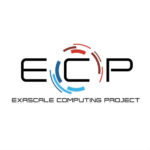[SPONSORED CONTENT] CentOS disappeared in the dead of winter. On December 8, 2020, the day with the earliest sunset of the year in northern latitudes, Red Hat announced it would no longer support the Linux server operating system, and for many CentOS users “what instruments we have agree the day of (its) death was a dark cold day.” If you were an advocate of CentOS Linux, you knew all about it. You knew its traits, its ways, its bugs, its quirks. You knew its personality. You knew how to tease the best out of it, and how to avoid….
Analytics8 Acquires Analytics Consultancy Mashey
CHICAGO, Sept. 22, 2022 — Analytics8, a data and analytics consulting firm, has announced the acquisition of Denver-based Mashey, a data analytics consultancy focused on modern data technology. The move to acquire Mashey—which was finalized on Sept. 16, 2022—enables Analytics8 to further its goal of continued growth while providing exceptional data services to clients, […]
Signal AI: External Intelligence Graph for Unstructured Data
New York and London, 12th July 2022 — Signal AI has announced the launch of its External Intelligence Graph, designed to deliver “a comprehensive view of an organization’s external world built on real-time data and content,” the company said. Signal AI said the External Intelligence Graph maps the relationships between the things a modern organization […]
insideHPC’s Exclusive ISC 2022 Video Interviews
Check out our exclusive video interviews from the ISC 2022 conference! You can find them on the right side of our home page. They include: AMD – An update on the EPYC CPUs and Instinct GPUs powering the new no. 1 supercomputer, Frontier, which is also the first HPC system to exascale-certified, along with the […]
@HPCpodcast: Google Cloud’s 9 Exaflop AI Supercomputer, Chip Price Hikes, HPC Helps Photograph a Black Hole in Our Galaxy and IBM’s Quantum Ambitions
@HPCpodcast was so pleased with our last episode, an extensive interview with the University of Tennessee’s (and Oak Ridge National Laboratory’s) Jack Dongarra (our followers liked it too), that we decided to let that episode stand as a special, double podcast edition podcast. Now Shahin and Doug are back behind our mics talking about a raft of interesting news in the HPC/AI world, including what Google Cloud bills as the fastest AI supercomputer, price hikes on chips from TSMC and Samsung, the role of the Frontera supercomputer in the visualization of a black hole in our Milky Way galaxy and IBM’s ambitious and well-executed quantum computing roadmap.
Post-Exascale Fabric: NNSA Awards Cornelis Networks $18M for High Performance Network R&D
Those who gave up for dead Intel’s Omni-Path fabric, which Intel began working on 2012 and stopped supporting seven years later, may want to re-think that. Cornelis Networks, the company breathing life into Omni-Path since 2020, has won an $18 million R&D contract from the U.S. National Nuclear Security Administration (NNSA). The award is part of DOE’s Next-Generation High Performance Computing Network (NG-HPCN) project….
AWS Launches Storage-Optimized EC2 Instances (I4i) Powered by Intel Xeon Scalable (Ice Lake) Processors
April 27, 2022 — Amazon Web Services has launched new new I4i instances powered by the latest generation Intel Xeon Scalable (Ice Lake) Processors with an all-core turbo frequency of 3.5 GHz. The company said The instances offer up to 30 TB of NVMe storage using AWS Nitro SSD devices that are custom-built by AWS, and are […]
ExaIO: Access and Manage Storage of Data Efficiently and at Scale on Exascale Systems
As the word exascale implies, the forthcoming generation exascale supercomputer systems will deliver 1018 flop/s of scalable computing capability. All that computing capability will be for naught if the storage hardware and I/O software stack cannot meet the storage needs of applications running at scale—leaving applications either to drown in data when attempting to write to storage or starve while waiting to read data from storage. Suren Byna, PI of the ExaIO project in the Exascale Computing Project (ECP) and computer staff scientist at Lawrence Berkeley National Laboratory, highlights the need for preparation to address the I/O needs of exascale supercomputers by noting that storage is typically the last subsystem available for testing on these systems.









